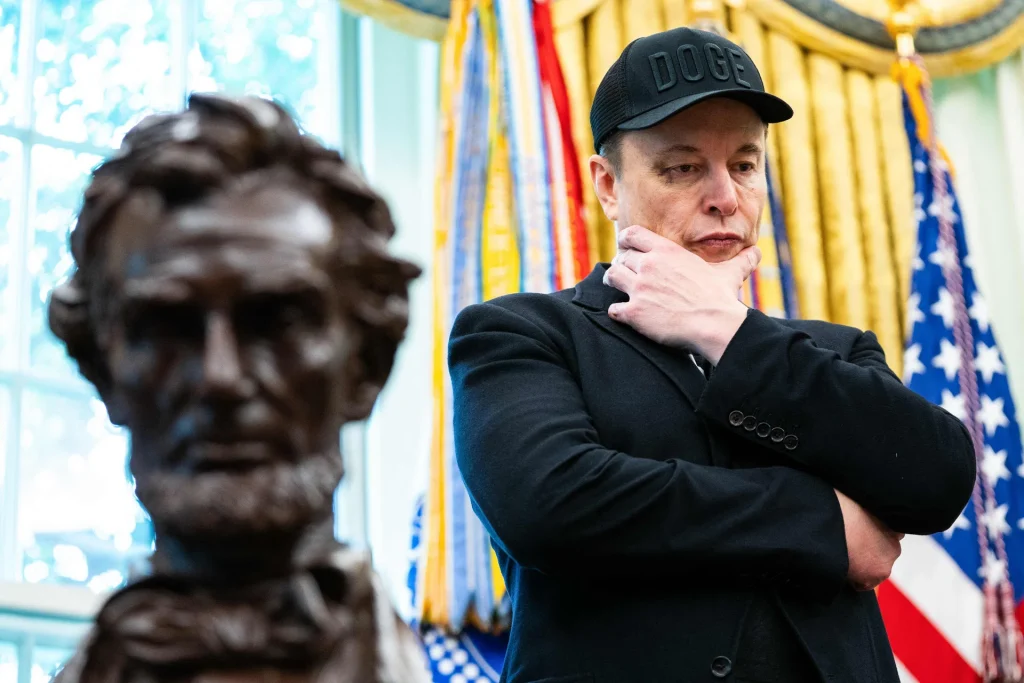THE popcorn emoji is out in force as the world’s richest person feuds with its most powerful leader. Even Thierry Breton, the European regulator who was a frequent target of Elon Musk’s ire, is at it. Still, as entertaining as the billionaire’s spat with Donald Trump may be, it also carries costly lessons for a US$630 billion space economy dominated by Musk’s Space Exploration Technologies, or SpaceX – such is the danger of co-dependence between de facto monopolies and increasingly protectionist states.
This danger wasn’t high on the agenda at the peak of Trump’s “bromance” with Musk, when the then-president-elect described SpaceX’s reusable rocket revolution in the way a Renaissance monarch might have praised a successful colonial expedition – with a mix of national pride, geopolitical influence and financial potential: “I called Elon. I said, ‘Elon, was that (landing manoeuvre) you?’ He said, ‘Yes, it was.’ I said, ‘…Can Russia do it?’ ‘No.’ ‘Can China do it?’ ‘No.’ ‘Can the United States do it, other than you?’ ‘No, nobody can do that.’ ‘That’s why I love you, Elon.’”
Since then, the love has turned to stardust as the contradictions inherent in Musk’s US$350 billion space empire spill over. The hypocrisy of a billionaire pitching himself as “dark Maga” – “Make America Great Again” – and taking a chainsaw to government spending while SpaceX (and Tesla) benefits from US$22 billion worth of government contracts is exacerbating the clash of egos, with Trump threatening to withdraw taxpayer support.
Meanwhile, Musk’s casual threat – quickly withdrawn – to halt the Dragon capsule upon which the National Aeronautics and Space Administration (Nasa) relies to ferry astronauts echoed the geopolitical blackmail exerted on the battlefield in Ukraine, where the billionaire has in the past halted attacks against Russia via SpaceX unit Starlink. These are high-stakes threats with huge societal costs.
We are no longer in the realm of enterprising conquistadors but conflicted taxpayer-backed trade empires. Even if Musk deserves credit for his part in SpaceX’s domination in both rocket launches and satellite communications, with 80 per cent market share in the former and more than 8,000 Starlink satellites in orbit, the feud’s weaponisation of space suggests innovation has taken a backseat to favouritism.
SpaceX’s successes this year have not been on the launchpad but rather inside the corridors of power, where its market share looks like a lever for rent extraction instead of exploration. Rule changes to high-speed Internet subsidies have opened the door to Starlink awards, as has the prospect of a defence “Golden Dome”.
BT in your inbox

Start and end each day with the latest news stories and analyses delivered straight to your inbox.
Trump’s tariff bullying of other countries has been reportedly accompanied by a push for regulatory approvals for Starlink. And putting a Musk ally atop Nasa appears to have been a last straw for the Maga movement.
While Nasa and the Pentagon remain heavily reliant on SpaceX, the silver lining to all this is that Musk’s competitors must get the message and step up their game. US commercial space companies including Jeff Bezos’ Blue Origin have been contacted by government officials about rocket readiness, according to the Washington Post (owned by Bezos).
Over in the European Union, which is desperately trying to not miss another technological revolution, governments are getting serious about reenergising legacy players such as Eutelsat Communications, which is in talks to raise 1.5 billion euros (S$2.2 billion) that would double the French state’s stake to 30 per cent.
The continent is also eyeing its first “hop” test of a reusable booster project called Themis, which I glimpsed while on a recent tour of Airbus and Safran’s Arianespace manufacturing facility near Paris.
But one gloomy possibility is that a prolonged Maga-Musk war makes space a chillier place for everyone. Nasa is already facing hefty budget cuts; snapbacks and U-turns driven by personal rivalries won’t inspire confidence. (Let’s not forget Amazon once blamed Trump’s personal dislike of Bezos for the loss of a US$10 billion Pentagon contract.)
And Europeans have a huge gap to close: A report by think tank Institut Montaigne notes that its military space spending is one-fifteenth the US’, while Bloomberg Intelligence’s John Davies estimates Eutelsat’s OneWeb network requires an extra four billion euros or more of capital spending by 2030.
More mergers and more state meddling are likely in a de-Musking world – though hopefully with some lessons learnt ahead of time. BLOOMBERG


